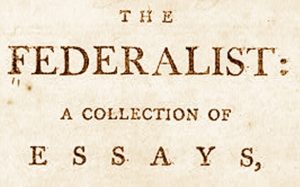The judgment creditor in Century Surety Co. v. Seidel, a case involving sexual assault on an underage restaurant employee, tried valiantly to collect from the restaurant’s insurance carrier. The Fifth Circuit found that the policy’s “criminal acts” exclusion  precluded coverage, despite the plaintiff not specifically pleading that the underlying acts were criminal: “Appellants have cited no case law stating that, to trigger a criminal act exclusion, the plaintiff in the underlying suit must, in addition to describing actions that necessarily imply a crime, also specifically label those actions as criminal. Such a rule is incongruous with the plain language of the Policy and would create an artifice in criminal-act exclusions.” No. 17-10026 (June 25, 2018).
precluded coverage, despite the plaintiff not specifically pleading that the underlying acts were criminal: “Appellants have cited no case law stating that, to trigger a criminal act exclusion, the plaintiff in the underlying suit must, in addition to describing actions that necessarily imply a crime, also specifically label those actions as criminal. Such a rule is incongruous with the plain language of the Policy and would create an artifice in criminal-act exclusions.” No. 17-10026 (June 25, 2018).
Monthly Archives: June 2018
 A pro se complaint in a mortgage servicing dispute stated a federal claim, and thus allowed removal, when “[I]n the ‘Facts’ section . . . [Plaintiffs’] wrote: ’17. In April, 2009 BANK OF AMERICA CORPORATION claimed to be the new mortgage servicer and payments were to be made to them. BANK OF AMERICA CORPORATION was not an “original party” to the “original negotiable instrument” which the “borrowers” negotiated. BANK OF AMERICA CORPORATION was a 3rd party debt collector, pretending to be the Lender. BANK OF AMERICA CORPORATION failed to adhere to the Fair Debt Collection Practice Act, as all 3rd party debt collectors are required to do.'” The Fifth Circuit observed: “[P]laintiffs may state a claim for relief by pleading facts that support the claim. The Smiths did just that—and cited the legal theory underlying their claim. The Smiths’ explicit reference to the ‘Fair Debt Collection Practice[s] Act’ (and its position in the U.S. Code), coupled with a description of conduct that could subject the Defendants to liability under the Act, solidifies our conclusion” about federal question jurisdiction. Smith v. Barrett Daffin Frappier Turner & Engel LLP, No. 16-51010 (June 12, 2018, unpublished).
A pro se complaint in a mortgage servicing dispute stated a federal claim, and thus allowed removal, when “[I]n the ‘Facts’ section . . . [Plaintiffs’] wrote: ’17. In April, 2009 BANK OF AMERICA CORPORATION claimed to be the new mortgage servicer and payments were to be made to them. BANK OF AMERICA CORPORATION was not an “original party” to the “original negotiable instrument” which the “borrowers” negotiated. BANK OF AMERICA CORPORATION was a 3rd party debt collector, pretending to be the Lender. BANK OF AMERICA CORPORATION failed to adhere to the Fair Debt Collection Practice Act, as all 3rd party debt collectors are required to do.'” The Fifth Circuit observed: “[P]laintiffs may state a claim for relief by pleading facts that support the claim. The Smiths did just that—and cited the legal theory underlying their claim. The Smiths’ explicit reference to the ‘Fair Debt Collection Practice[s] Act’ (and its position in the U.S. Code), coupled with a description of conduct that could subject the Defendants to liability under the Act, solidifies our conclusion” about federal question jurisdiction. Smith v. Barrett Daffin Frappier Turner & Engel LLP, No. 16-51010 (June 12, 2018, unpublished).
 Various ripeness challenges to claims based on the Fourth, Fifth, and Fourteenth Amendments were rejected in the face of these remarkably strong facts: “Without prior notice, the City of New Orleans demolished a building along the IH-10 service road that plaintiffs had recently purchased at a tax sale. Yet two days before the demolition, the City actually cancelled the Code Enforcement lien on the property, which it obtained after sending notices only to the owner from 18 years earlier. When the Garretts objected to the demolition, the City added insult to injury by sending them a bill for the costs.” Archbold-Garrett v. City of New Orleans, No. 17-30692 (June 22, 2018).
Various ripeness challenges to claims based on the Fourth, Fifth, and Fourteenth Amendments were rejected in the face of these remarkably strong facts: “Without prior notice, the City of New Orleans demolished a building along the IH-10 service road that plaintiffs had recently purchased at a tax sale. Yet two days before the demolition, the City actually cancelled the Code Enforcement lien on the property, which it obtained after sending notices only to the owner from 18 years earlier. When the Garretts objected to the demolition, the City added insult to injury by sending them a bill for the costs.” Archbold-Garrett v. City of New Orleans, No. 17-30692 (June 22, 2018).
 I think the server for this blog is located in Texas, but it could just as easily be on the South Pole – I have no control over (or interest in) how HostGator organizes its business. In the same spirit, the Fifth Circuit affirmed a personal jurisdiction dismissal in a trademark dispute between “greatfence.com” and “agreatfence.com“: “We need not decide today whether a web server’s location alone never suffices to establish personal jurisdiction. We simply hold that it cannot do so here, where there is no allegation, argument, or evidence that the defendants played any role in selecting the server’s location—or that its location was selected with the purpose or intent of facilitating the defendants’ business in the forum.” GreatFence.com v. Bailey, No. 17-20487 (June 13, 2018, unpublished) (emphasis in original).
I think the server for this blog is located in Texas, but it could just as easily be on the South Pole – I have no control over (or interest in) how HostGator organizes its business. In the same spirit, the Fifth Circuit affirmed a personal jurisdiction dismissal in a trademark dispute between “greatfence.com” and “agreatfence.com“: “We need not decide today whether a web server’s location alone never suffices to establish personal jurisdiction. We simply hold that it cannot do so here, where there is no allegation, argument, or evidence that the defendants played any role in selecting the server’s location—or that its location was selected with the purpose or intent of facilitating the defendants’ business in the forum.” GreatFence.com v. Bailey, No. 17-20487 (June 13, 2018, unpublished) (emphasis in original).
 The “equal inference” rule has played an important role in Texas law about sufficiency of the evidence, especially after the memorable hypothetical in City of Keller v. Wilson, 168 S.W.3d 802, 814 (Tex. 2005): “Thus, for example, one might infer from cart tracks in spilled macaroni salad that it had been on the floor a long time, but one might also infer the opposite—that a sloppy shopper recently did both.” But that rule did not control in a slip-and-fall case involving the residue from an “autoscrubber” (right). The Fifth Circuit reasoned: “[Plaintiff’s] position is that the [security] video and Wal-Mart policies together suggest that (a) Wal-Mart used the machine to place slippery liquid on the floor, (b) the liquid was likely to collect in low-lying areas, (c) the machine paused over a low-lying area, (d) no Wal-Mart personnel checked for or took the requisite steps to remove it, and (e) [Plaintiff] slipped just where the machine had paused. This plausibly suggests the spill came from the auto-scrubber.” Garcia v. Wal-Mart, No. 17-20429 (June 18, 2018).
The “equal inference” rule has played an important role in Texas law about sufficiency of the evidence, especially after the memorable hypothetical in City of Keller v. Wilson, 168 S.W.3d 802, 814 (Tex. 2005): “Thus, for example, one might infer from cart tracks in spilled macaroni salad that it had been on the floor a long time, but one might also infer the opposite—that a sloppy shopper recently did both.” But that rule did not control in a slip-and-fall case involving the residue from an “autoscrubber” (right). The Fifth Circuit reasoned: “[Plaintiff’s] position is that the [security] video and Wal-Mart policies together suggest that (a) Wal-Mart used the machine to place slippery liquid on the floor, (b) the liquid was likely to collect in low-lying areas, (c) the machine paused over a low-lying area, (d) no Wal-Mart personnel checked for or took the requisite steps to remove it, and (e) [Plaintiff] slipped just where the machine had paused. This plausibly suggests the spill came from the auto-scrubber.” Garcia v. Wal-Mart, No. 17-20429 (June 18, 2018).
 The Fifth Circuit issued a rare reversal in favor of an ERISA beneficiary in White v. Life Ins. Co. of N. Am. The issue was whether an “intoxication” exclusion applied; a doctor consulted by the plan administrator in its decision about benefits opined: “Since the only blood test done was an alcohol [test] that was negative and no blood tested for the presence of drugs, an estimation of Mr. White’s level of impairment cannot be done. The drugs present in his urine only show that he had prior exposure and cannot be used to estimate a level of impairment. Further, the drug screen that was done on Mr. White’s urine specimen only provided qualitative positive results.” The Court concluded that even though the insurer’s denial of benefits was supported by substantial evidence, its failure to expressly consider this report in its analysis (or to produce the report to the beneficiary’s estate until litigation) showed that its inherent conflict of interest had predominated and invalidated its denial. No. 17-30367 (revised June 14, 2018).
The Fifth Circuit issued a rare reversal in favor of an ERISA beneficiary in White v. Life Ins. Co. of N. Am. The issue was whether an “intoxication” exclusion applied; a doctor consulted by the plan administrator in its decision about benefits opined: “Since the only blood test done was an alcohol [test] that was negative and no blood tested for the presence of drugs, an estimation of Mr. White’s level of impairment cannot be done. The drugs present in his urine only show that he had prior exposure and cannot be used to estimate a level of impairment. Further, the drug screen that was done on Mr. White’s urine specimen only provided qualitative positive results.” The Court concluded that even though the insurer’s denial of benefits was supported by substantial evidence, its failure to expressly consider this report in its analysis (or to produce the report to the beneficiary’s estate until litigation) showed that its inherent conflict of interest had predominated and invalidated its denial. No. 17-30367 (revised June 14, 2018).
 I am speaking this week at the 28th Annual Conference on State and Federal Appeals sponsored by the University of Texas School of Law; my topic is a “Fifth Circuit Update” and this is my PowerPoint.
I am speaking this week at the 28th Annual Conference on State and Federal Appeals sponsored by the University of Texas School of Law; my topic is a “Fifth Circuit Update” and this is my PowerPoint.
 Illustrating the sort of highly specific, but highly practical, issues that arise under Twombly, the Fifth Circuit held that “plaintiffs alleging claims under [ERISA] § 1132(a)(1)(B) for plan benefits need not necessarily identify the specific language of every plan provision at issue to survive a motion to dismiss under Rule 12(b)(6) (applying Electrostim Medical Services, Inc. v. Health Care Service Corp., 614 F. App’x 731 (5th Cir. 2015)). It was important to this holding that the plaintiff “was unable to obtain plan documents even after good-faith efforts to do so,” and the insurers “did not produce most of the relevant plan documents until the deadline to re-plead had passed . . . .” Innova Hospital v. Blue Cross, No. 14-11300 (June 12, 2018).
Illustrating the sort of highly specific, but highly practical, issues that arise under Twombly, the Fifth Circuit held that “plaintiffs alleging claims under [ERISA] § 1132(a)(1)(B) for plan benefits need not necessarily identify the specific language of every plan provision at issue to survive a motion to dismiss under Rule 12(b)(6) (applying Electrostim Medical Services, Inc. v. Health Care Service Corp., 614 F. App’x 731 (5th Cir. 2015)). It was important to this holding that the plaintiff “was unable to obtain plan documents even after good-faith efforts to do so,” and the insurers “did not produce most of the relevant plan documents until the deadline to re-plead had passed . . . .” Innova Hospital v. Blue Cross, No. 14-11300 (June 12, 2018).
 Huckaba signed an arbitration agreement with her employer, Ref-Chem – but Ref-Chem did not sign the agreement. The agreement had signature blocks for both parties, referred to the “signature affixed hereto” and the legal effect of “signing this agreement,” and also said that it “may not be changed, except in writing and signed by all parties.” The Fifth Circuit concluded that the agreement was not enforceable, focusing on the distinction between acceptance of the offer, and the separate requirement of “execution and delivery of the contract with intent that it be mutual and binding.” Huckaba v. Ref-Chem, L.P., No. 17-50341 (June 11, 2018).
Huckaba signed an arbitration agreement with her employer, Ref-Chem – but Ref-Chem did not sign the agreement. The agreement had signature blocks for both parties, referred to the “signature affixed hereto” and the legal effect of “signing this agreement,” and also said that it “may not be changed, except in writing and signed by all parties.” The Fifth Circuit concluded that the agreement was not enforceable, focusing on the distinction between acceptance of the offer, and the separate requirement of “execution and delivery of the contract with intent that it be mutual and binding.” Huckaba v. Ref-Chem, L.P., No. 17-50341 (June 11, 2018).
 The insured’s commercial property insurance policy provided coverage from June 2, 2012 to June 2, 2013. “The summary judgment evidence reveals that several hail storms struck the vicinity of the hotel in the several years preceding [the insured’s] claim. Only one of these storms fell within the coverage period.” The Fifth Circuit found that the insured failed to establish coverage, even with an expert’s opinion that said a date within the period was “most likely,” when that opinion was later disclaimed and “conflicts with the data it purports to rely on.” Certain Underwriters v. Lowen Valley View LLC, No. 17-10914 (June 6, 2018).
The insured’s commercial property insurance policy provided coverage from June 2, 2012 to June 2, 2013. “The summary judgment evidence reveals that several hail storms struck the vicinity of the hotel in the several years preceding [the insured’s] claim. Only one of these storms fell within the coverage period.” The Fifth Circuit found that the insured failed to establish coverage, even with an expert’s opinion that said a date within the period was “most likely,” when that opinion was later disclaimed and “conflicts with the data it purports to rely on.” Certain Underwriters v. Lowen Valley View LLC, No. 17-10914 (June 6, 2018).
 A lease dispute turned on the agreement’s effective date. The lease was found ambiguous on that point (and the subsequent trial result based on parol evidence affirmed), when it said:
A lease dispute turned on the agreement’s effective date. The lease was found ambiguous on that point (and the subsequent trial result based on parol evidence affirmed), when it said:
- On the last page – “IN WITNESS WHEREOF, the parties hereto have duly executed this Lease as of the day and year first written above.”
- And on the first page – “This Ground Lease (“Lease”), dated for reference purposes as ________, 2014, is made and executed by and between Malik and Sons, LLC (“Landlord”), and CIRCLE K STORES INC., a Texas corporation (“Tenant”).”
The Fifth Circuit concluded “Circle K offers a plausible interpretation, but Malik offers an alternative, credible interpretation to Circle K’s proposed interpretation. It seems equally—if not more likely—that the ‘day and year first written above’ is referencing a date the parties should have written on the last page. Therefore, although the last page references an execution date ‘written above,’ there is no date on that page. The only other date in the document is labeled as ‘for reference purposes.’ Even though Circle K is correct that parties ‘are free to specify the date of a contract’s execution,’ the issue here is whether they did.” Malik & Sons v. Circle K Stores, No. 17-30113 (May 15, 2018, unpublished).
 “Litigation about litigation,” usually in the form of a federal suit to enjoin or otherwise overcome a state-court case, can involve complicated federalism concepts such as the Rooker-Feldman doctrine or Younger abstention. The Fifth Circuit reiterated an even more basic principle in Machetta v. Moren, in which an unhappy party to a state court child custody case sought to assert civil rights claims against the judges: “The district court [correctly] dismissed the case because no case or controversy exists between ‘a judge who adjudicates claims under a statute and a litigant who attacks the constitutionality of the statute.'” No. 17-20533 (June 4, 2018, unpublished).
“Litigation about litigation,” usually in the form of a federal suit to enjoin or otherwise overcome a state-court case, can involve complicated federalism concepts such as the Rooker-Feldman doctrine or Younger abstention. The Fifth Circuit reiterated an even more basic principle in Machetta v. Moren, in which an unhappy party to a state court child custody case sought to assert civil rights claims against the judges: “The district court [correctly] dismissed the case because no case or controversy exists between ‘a judge who adjudicates claims under a statute and a litigant who attacks the constitutionality of the statute.'” No. 17-20533 (June 4, 2018, unpublished).
 A useful reminder about contract litigation appears in a recent insurance coverage dispute: “Neither party argues that the Hartford policy is ambiguous. Rather, the parties dispute whether the policy unambiguously provides coverage—Axis’s contention—or unambiguously excludes coverage—Hartford’s contention.” Bennett v. Hartford Ins. Co., No. 17-30311 (May 18, 2018) (emphasis in original).
A useful reminder about contract litigation appears in a recent insurance coverage dispute: “Neither party argues that the Hartford policy is ambiguous. Rather, the parties dispute whether the policy unambiguously provides coverage—Axis’s contention—or unambiguously excludes coverage—Hartford’s contention.” Bennett v. Hartford Ins. Co., No. 17-30311 (May 18, 2018) (emphasis in original).